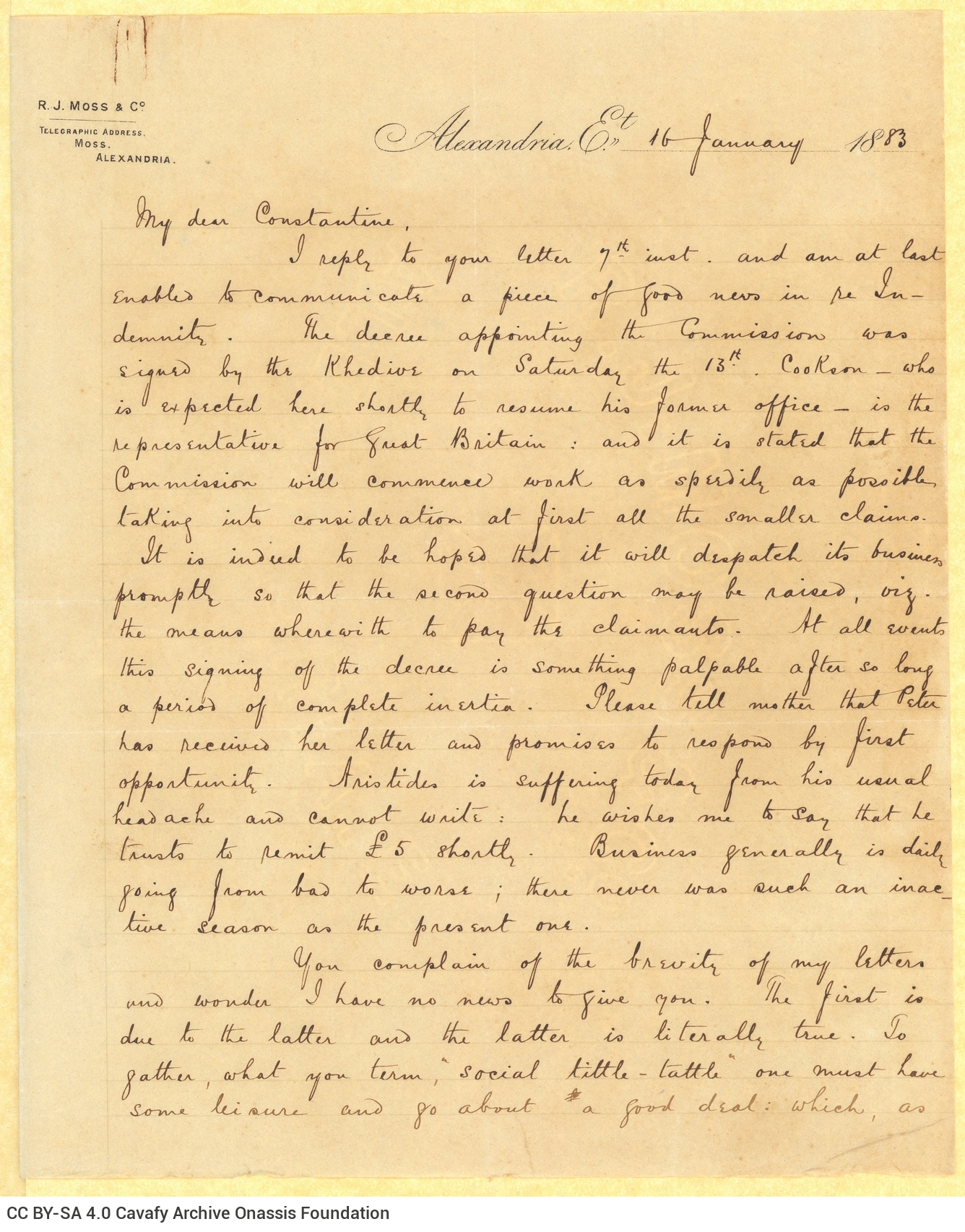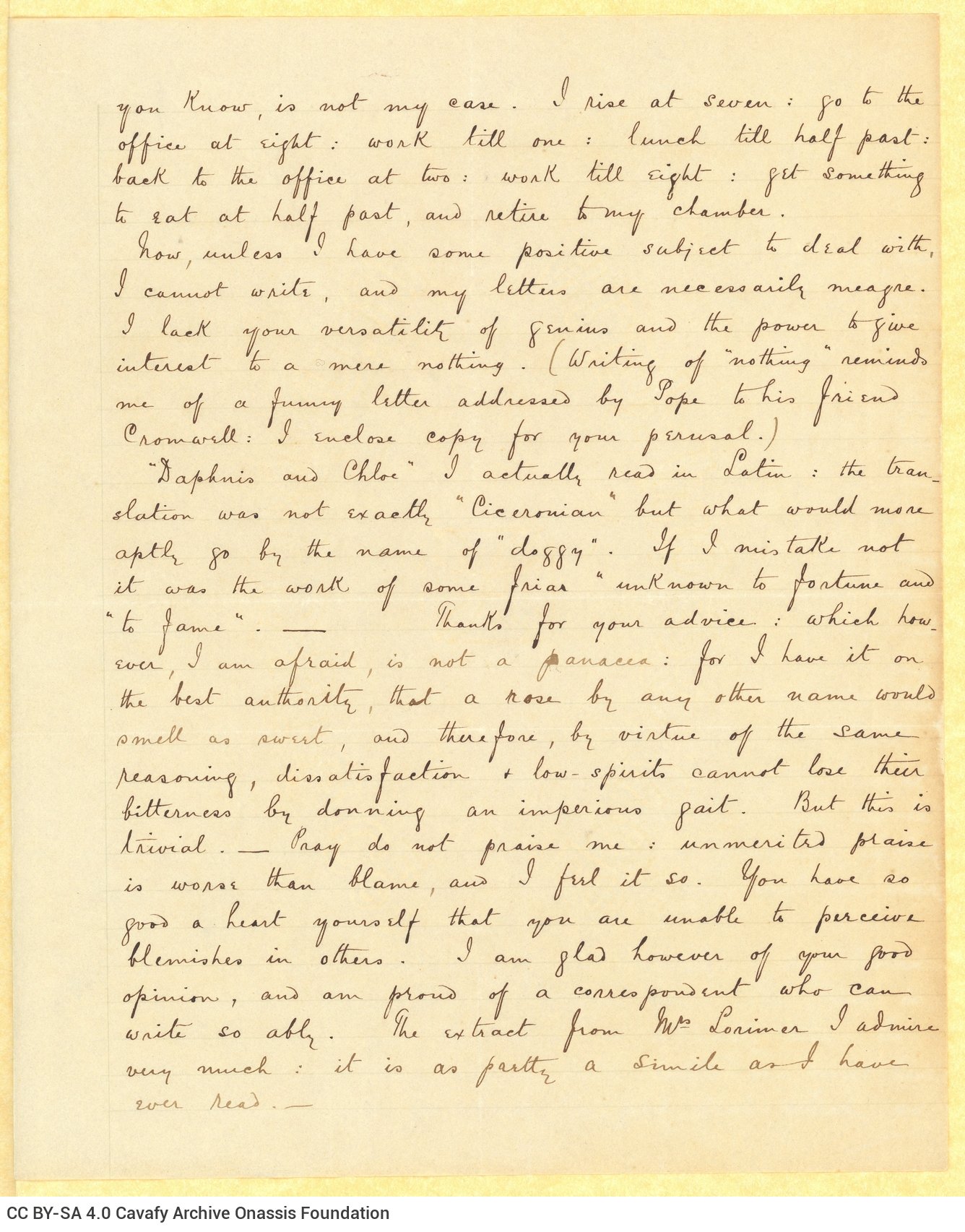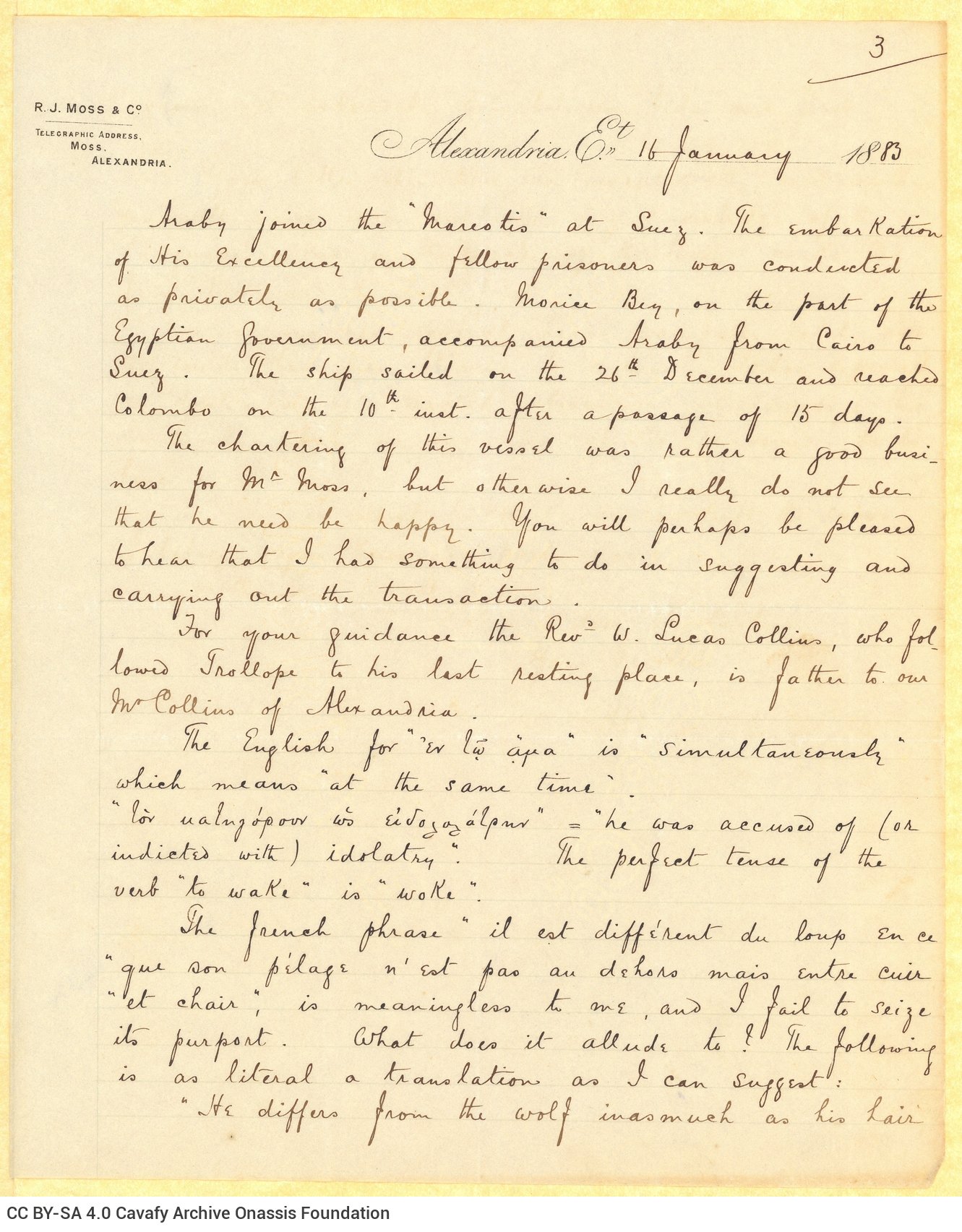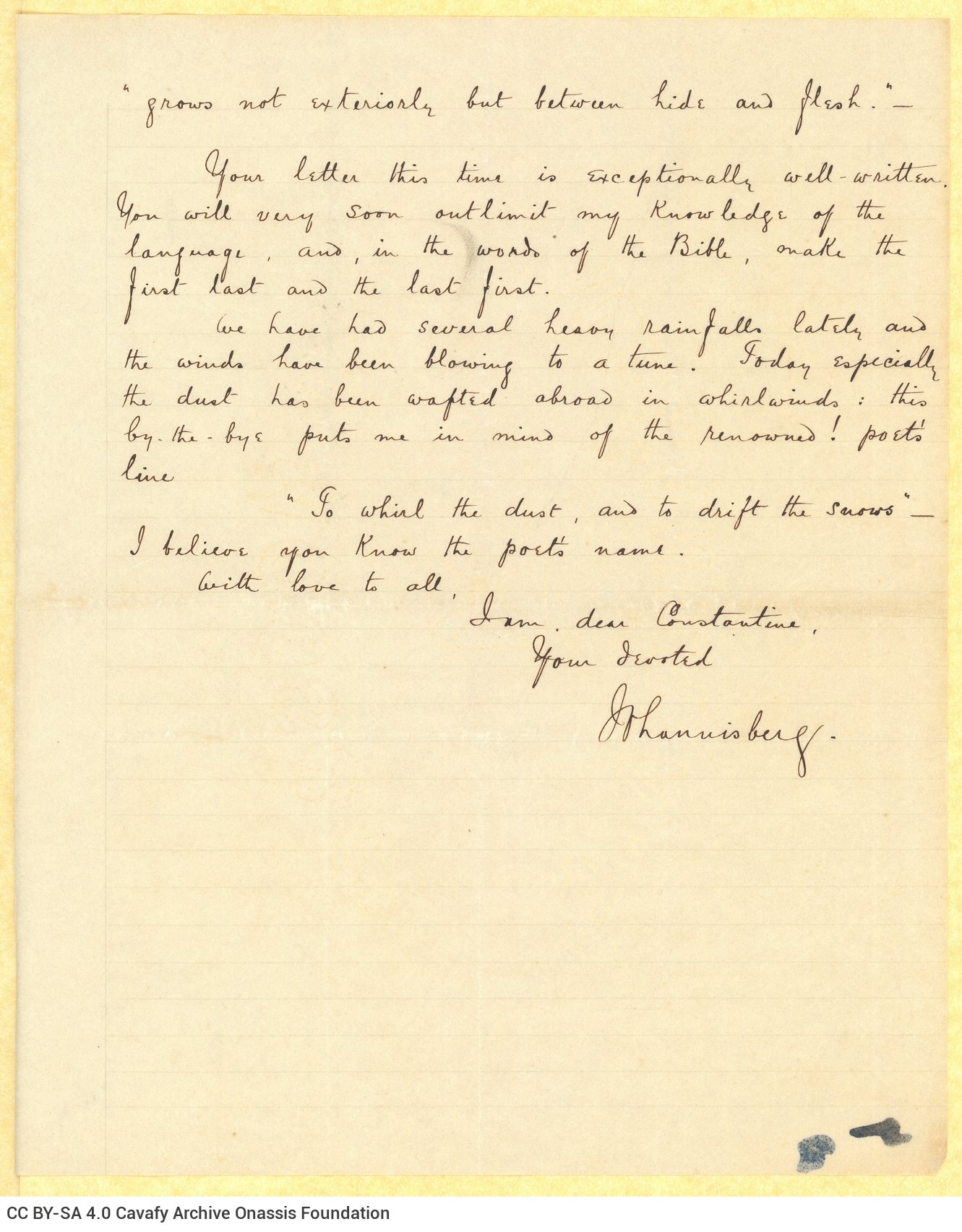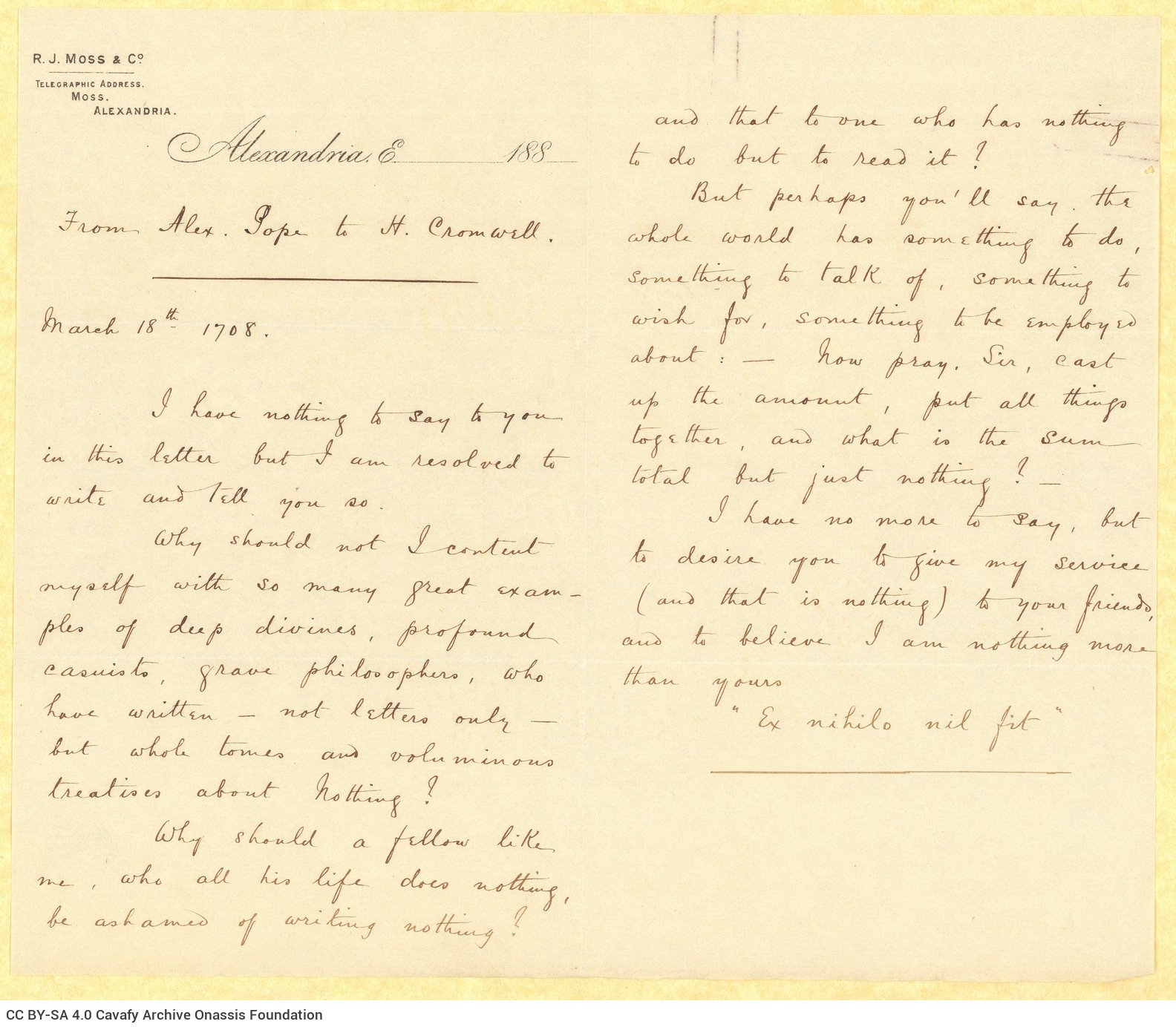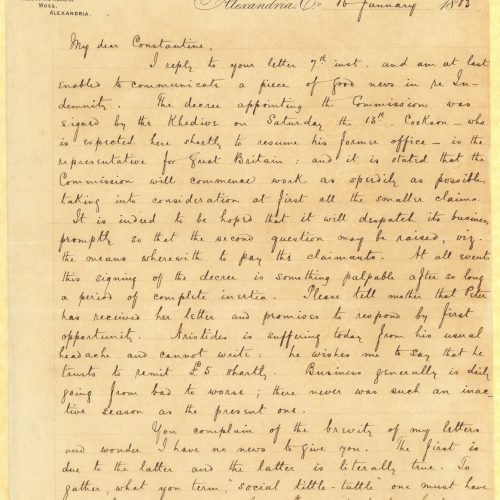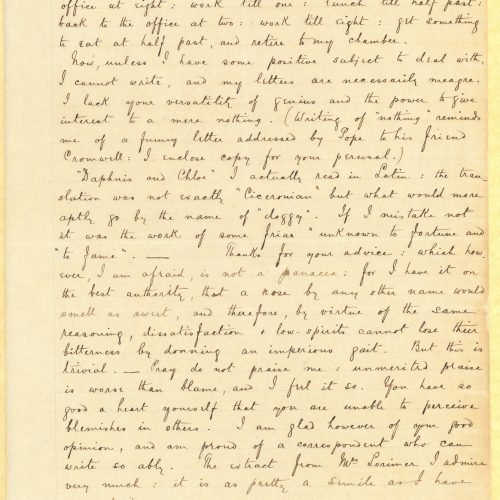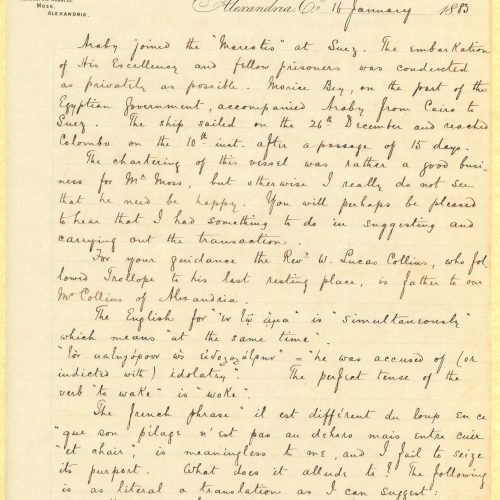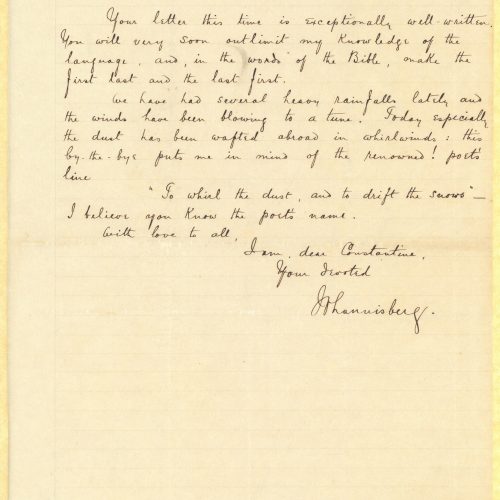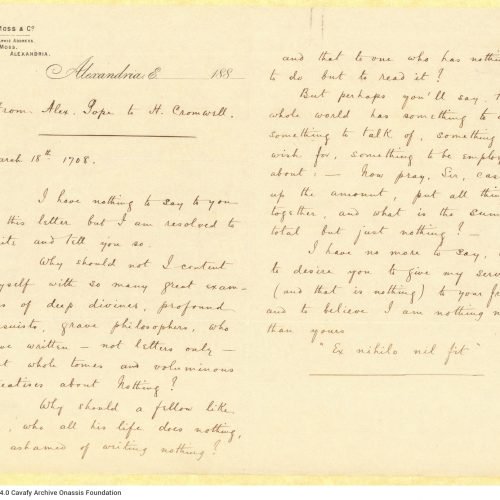υπογράμμιση
υπογράμμιση
πράσινη γραμματοσειρά
κίτρινη γραμματοσειρά
κόκκινη γραμματοσειρά
ΠΕΡΙΓΡΑΦΗ ΨΗΦΙΑΚΟΥ ΑΝΤΙΓΡΑΦΟΥ
ΠΕΔΙΟ ΑΝΑΓΝΩΡΙΣΗΣ
44 x 27,5 εκ.
ΠΕΔΙΟ ΠΛΑΙΣΙΟΥ ΠΑΡΑΓΩΓΗΣ
ΠΕΔΙΟ ΠΕΡΙΕΧΟΜΕΝΟΥ ΚΑΙ ΔΙΑΡΘΡΩΣΗΣ
Χειρόγραφη επιστολή του Τζων Καβάφη προς τον Κ. Π. Καβάφη στην πρώτη και στην τρίτη σελίδα δύο τετρασέλιδων και στο recto φύλλου της εταιρείας R. J. Moss & Co., Alexandria. Η σελίδα 3 αριθμημένη. Ενημέρωση για οικονομικά θέματα της οικογένειας και για το ζήτημα των αποζημιώσεων. Γλωσσικές παρατηρήσεις. Παράθεμα από επιστολή του Αλεξάντερ Πόουπ (Alexander Pope) προς τον Χένρυ Κρόμγουελ (Henry Cromwell).
ΠΕΔΙΟ ΟΡΩΝ ΠΡΟΣΒΑΣΗΣ ΚΑΙ ΧΡΗΣΗΣ
Αγγλική κυρίως
Γραφή με μελάνι. Υδατόσημο: R. J. Moss & Co Alexandria. Φθορά φυσικού τεκμηρίου: οξειδώσεις.
ΠΕΔΙΟ ΠΑΡΑΤΗΡΗΣΕΩΝ
Η επιμέλεια των μεταγραφών των επιστολών του Ιωάννη Κωνσταντίνου Καβάφη προς τον Κ. Π. Καβάφη πραγματοποιήθηκε για πρώτη φορά από την Κατερίνα Γκίκα και αναρτήθηκε στον επίσημο διαδικτυακό τόπο του Αρχείου Καβάφη.
ΣΗΜΕΙΑ ΠΡΟΣΒΑΣΗΣ
Καβάφης, Ιωάννης Κωνσταντίνος (John), «Επιστολή του John Καβάφη προς τον Κ. Π. Καβάφη» (16.01.1883), Επιστολή, Αρχείο Κ. Π. Καβάφη του Ιδρύματος Ωνάση, GR-OF CA CA-SF02-S01-SS02-F20-SF001-0014 (389), στο: Ψηφιακή Συλλογή του Αρχείου Καβάφη, επιμ. Ίδρυμα Ωνάση, Αθήνα, τελευταία ενημέρωση 01.10.2025: https://doi.org/10.26256/CA-SF02-S01-SS02-F20-SF001-0014.
